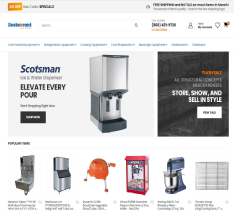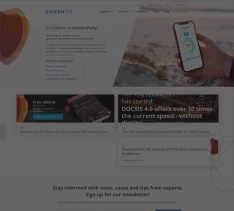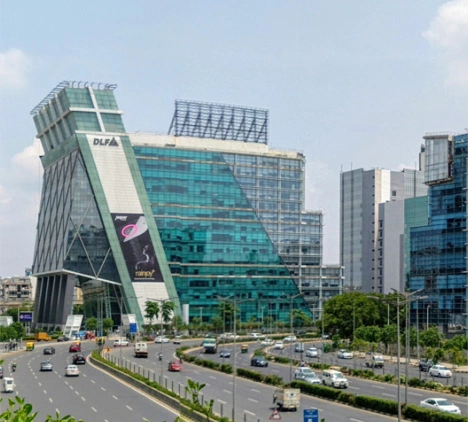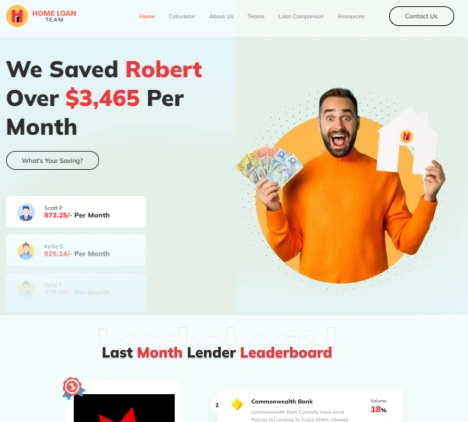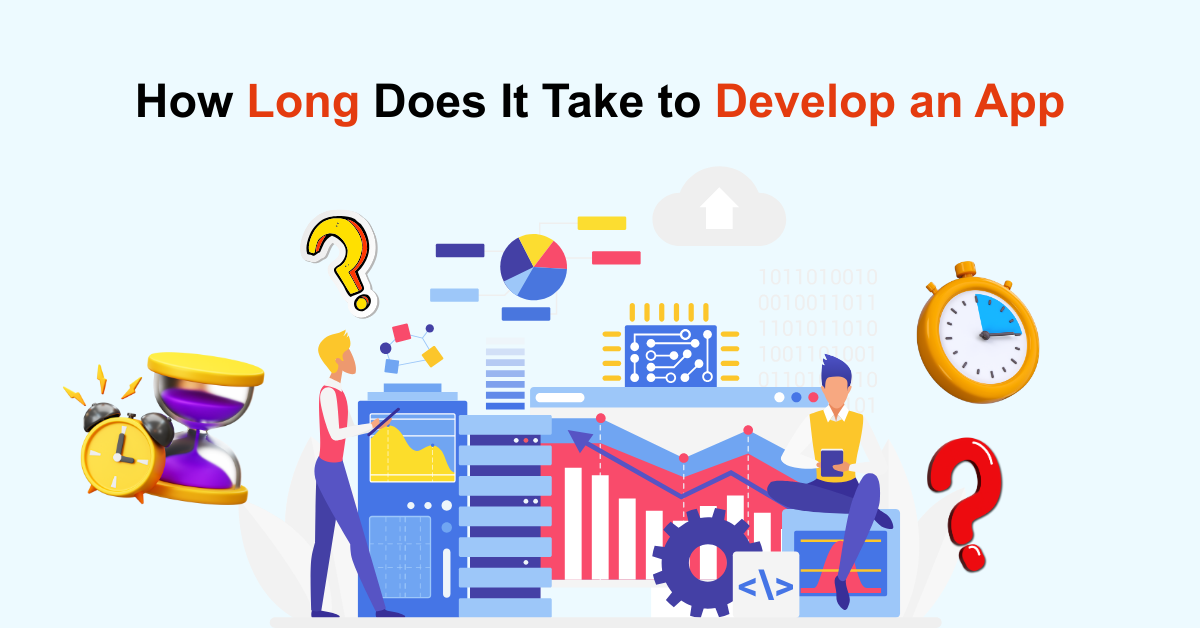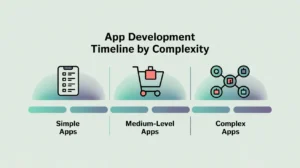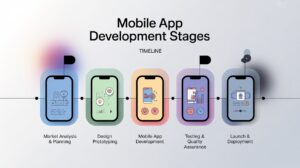“The time to develop an app typically depends on several factors, like app complexity, platform type, and development stages timeline. Typically, a simple app with basic functionalities will take 2 to 4 months for development, a mid-level app will take 4 to 8 months, and a complex app with advanced functionalities will take 9 to 12 months to develop.”
Having an app idea in mind? You are not alone. Startups to mid-size businesses are eager to launch a big app in the market.
The reason behind this is that the global mobile app development market revenue is expected to increase from US$195.77 billion, with a growth rate of 5.09% annually, by 2030.
And with this excitement, one question would constantly be switching in everyone’s mind: “How long does it take to develop an app?”
This question does not have a straightforward answer because several factors, including app complexity, development stages, platform type, third-party integrations, and more, influence the mobile app development timeline.
But today, through this blog, you will get a clear answer to your most troubling question: How long does it take to develop an app?
How Long Does it Take to Develop an App Based on Complexity?
App complexity holds the biggest picture in the app development timeline. The complexity of your mobile app depends on the number of features you want to embed.
The more app functionalities that are added, the more complex your app becomes, which will eventually increase the development time.
Let’s see how app complexity decides the app development timeline.
1. Simple Apps
Simple apps have minimal features and limited functionality, as they primarily focus on one core feature. For instance, apps like calculators, to-do list apps, or note-taking apps typically require minimal backend integration and involve a single core functionality to deliver.
Such apps, because of their simplicity, get developed faster. However, this doesn’t mean skipping the development cycle.
Simple apps also undergo various development stages, including design, development, and testing, which can take some time to complete. The average time for simple app development ranges between 2 and 4 months.
Skip Delays, Build Your App Right
2. Medium-Level Apps
Mobile apps, such as eCommerce platforms, social networking apps, and food delivery apps, are generally known to be mid-level apps that involve complex functionalities, including user authentication, high-end UI/UX design, data integration, and third-party APIs (such as payment gateways, real-time chat, and maps).
With such a high number of requirements, the timeline for mid-level app development typically ranges from 4 to 8 months, which usually depends on the size and approach of the development team.
3. Complex Apps
Complex apps are large-scale applications that require functionalities such as advanced security, custom backend portals, and support for multiple platforms, including Android, iOS, and the web.
| App Complexity | Development Time |
|---|---|
| Simple App | 3-4 months |
| Mid-Level App | 5-8 months |
| Complex App | 9-12 months |
How Long Does it Take to Develop a Mobile App During Different Development Stages?
Mobile app doesn’t happen all at once. It’s actually a complex cycle that involves different stages, including design, development, testing, and launch. Each development stage has its own timeframe, which eventually adds up to the total time needed for mobile app development. Let’s break down the timeline needed for each stage in detail.
Step1:Market Analysis and Planning (2-3 weeks)
You consider this stage as the foundation of your mobile app development. Proper research and planning lead to the success of your app. App development teams conduct thorough analyses of your app’s goals, target audience, and current market trends.
Detailed research helps teams identify the key features to be added to your app to make it successful, based on which the complete roadmap for your app development is designed. The market research and analysis stage typically takes around two to three weeks.
Step 2: Design Prototyping
Once your app development roadmap is ready, the design stage starts, in which the UI/UX designers plan the look and feel of your mobile app.
For this, designers create wireframes (blueprint of your app), prototypes (interactive videos), and polished screens. Design prototyping helps create an engaging and intuitive mobile app. It usually takes around 2 to 4 weeks for prototyping.
Step 3: Mobile App Development
This stage is considered the most important in the entire development cycle, as it takes the longest time.
Now you might wonder why? The development stage is the one where actual coding starts to implement your vision into reality.
Developers start building the frontend, backend, and integrating essential third-party APIs using different mobile app development frameworks and technologies. App development time usually varies based on the app’s complexity.
For instance, a simple app with basic functionalities will typically take around 3 to 6 months to develop, while a large-scale app would require more than 6 months. Overall, the development stage takes around 3 to 6+ months.
Turn Complex Features Into Smooth Launches
Step 4: Testing and Quality Assurance
Apps launched without testing usually face performance issues and bugs. That’s why every app should be thoroughly tested to avoid bugs, device compatibility issues, and user experience issues.
You can run the testing process either in parallel with the development stage or separately once the development cycle is accomplished.
But it becomes essential to perform thorough testing of your app before launch. Because a well-tested ed is more likely to succeed compared to one with several bugs and errors, a rigorous testing cycle usually takes around 3 to 6 weeks.
Step 5: App Launch and Deployment
After successfully testing your app, the development team launches it in the desired app store.
iOS app submissions are typically reviewed within 24 hours, whereas the Play Store launches apps more quickly. The app launching phase typically takes around 1-2 weeks.
| App Complexity | Timeframe |
|---|---|
| Research and Planning | 2-3 weeks |
| Design | 2-4 weeks |
| Development | 3-6 months (Based on complexity) |
| Quality Testing | 3-6 weeks |
| Launch and Deployment | 1-2 weeks |
Factors Influencing the Mobile App Development Time
Besides app complexity and development stages, there are several other factors which affect the app development timeline.
1. Platform Type
How long does it take to develop an app also depends on the type of mobile app development platform you want to launch it on. Native apps are designed specifically for any one platform, either iOS or Android.
And so, native apps usually take longer to develop, as separate teams are required for coding and testing on each platform. On the contrary, cross-platform apps, which are designed for both iOS and Android platforms, are built faster as they are designed using a single codebase.
2. Development Team Size and Expertise
Developing a mobile app requires effective skills and expertise. Moreover, the expertise of the development team also makes the app development faster and efficient. It’s like having an experienced chef to create several tempting dishes faster without compromising on taste.
An experienced mobile app development company follows an agile development approach, enabling it to build and launch mobile apps faster and more efficiently.
Less experienced teams would often struggle with deadlines, resulting in an app filled with numerous bugs and errors.
That’s why it is always recommended to conduct thorough research to have access to the right mobile app development services partner.
3. Third-Party Integrations
If your mobile app needs features related to payments, chat, or analytics, then building them from scratch would take more time.
But here’s the catch. Today, you can find several third-party APIs that are easily integrated with your app solution to deliver advanced functionalities.
However, although you simply need to integrate the APIs, they will take some time, which will eventually add to the overall app development time.
Your App Idea Deserves More Than Guesswork
Final Say
So, now after going through this blog, you might have got your answer to how long does it take to develop an app.
Several factors, including development team expertise and platform type, among others, impact the development time. Among these many factors, app complexity and development stages are the most prominent.
If you are considering developing a mobile app, Technocrats Horizons becomes your effective partner. Our mobile app solutions are embedded with leading technologies like AI and AR/VR, which allow you to lead the competitive curve with ease in a unique way. Moreover, we follow an agile development approach that allows us to deliver a high-performing mobile app on time.
Contact us now to develop your mobile app on time
Your App Dream Starts Here
Connect with us for a no-pressure, expert-led strategy session.


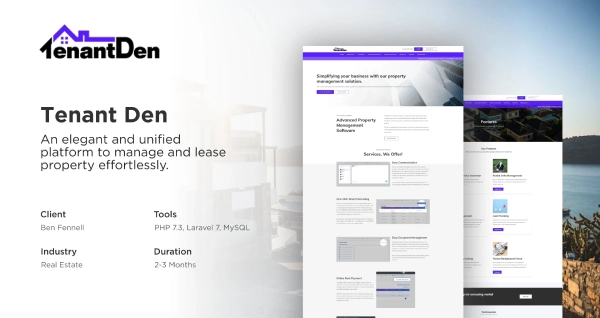

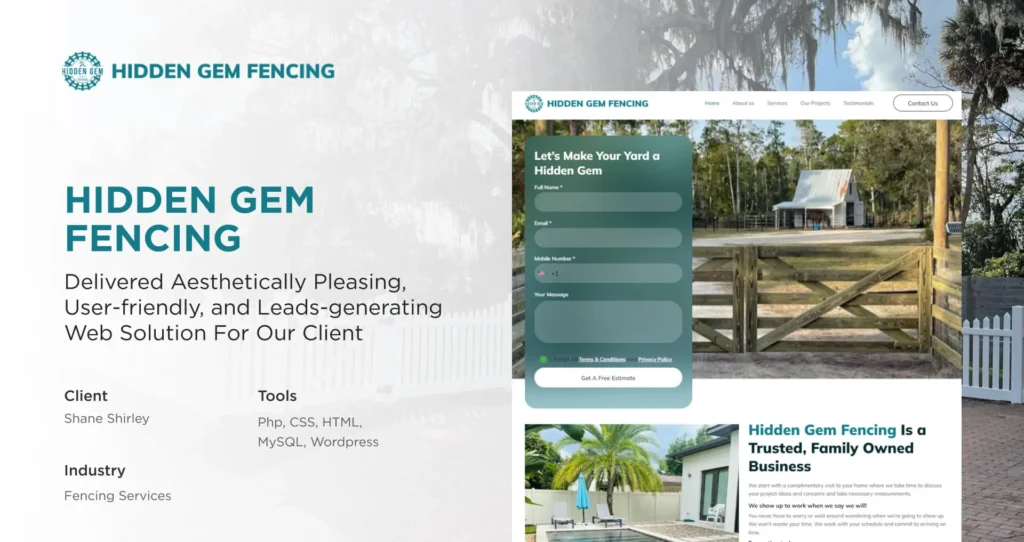
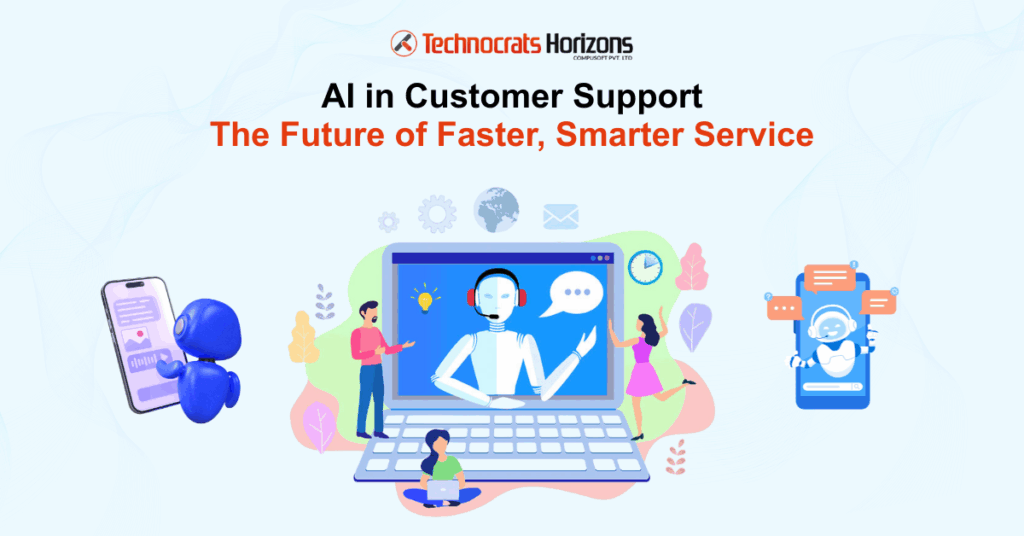



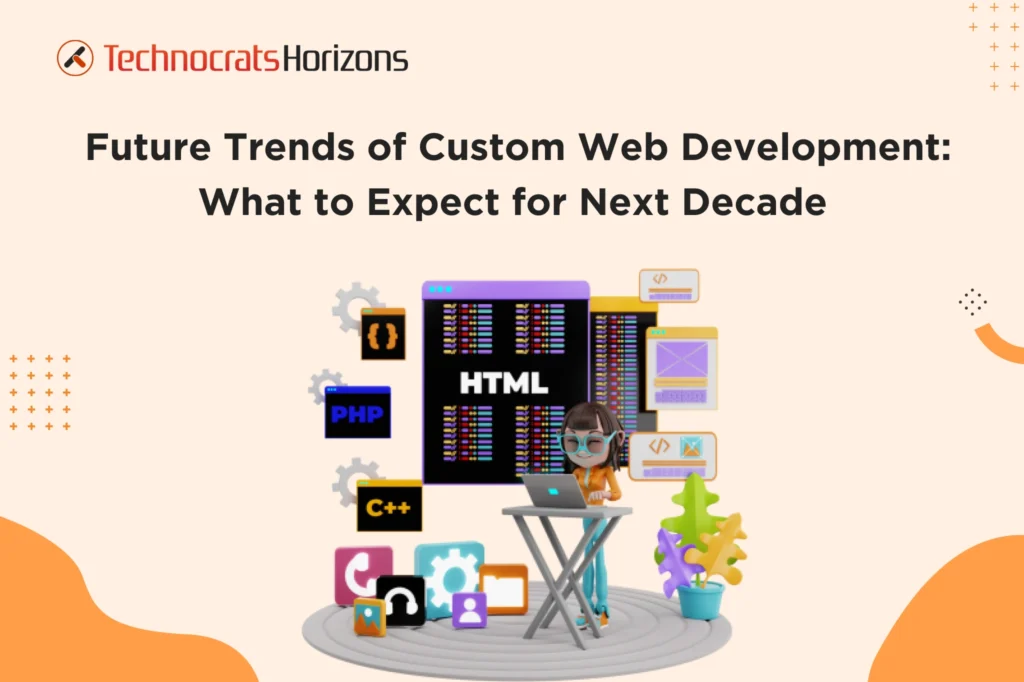
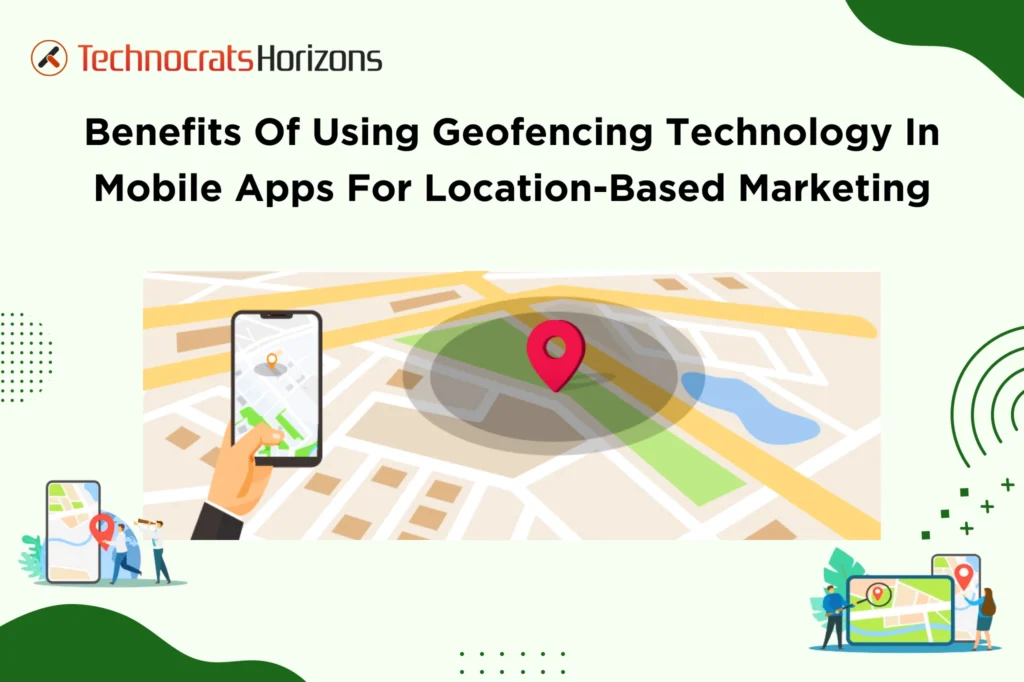
 Request a
Request a













